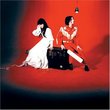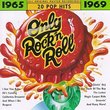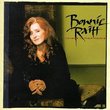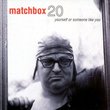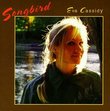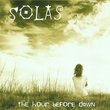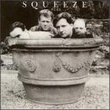| All Artists: Philip Glass Title: Philip Glass: La Belle et la BÍte Members Wishing: 1 Total Copies: 0 Label: Nonesuch Original Release Date: 12/23/1947 Re-Release Date: 4/18/1995 Genres: Soundtracks, Classical Styles: Opera & Classical Vocal, Historical Periods, Modern, 20th, & 21st Century Number of Discs: 2 SwapaCD Credits: 2 UPC: 075597934724 |
Search - Philip Glass :: Philip Glass: La Belle et la BÍte
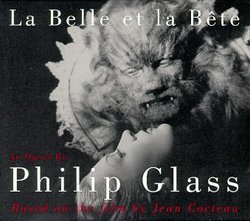 | Philip Glass Philip Glass: La Belle et la BÍte Genres: Soundtracks, Classical
This is an extraordinary retelling of the classic story "The Beauty and the Beast", this time based on the Jean Cocteau film La Belle et la Bete. Philip Glass, one of our reigning minimalists, studied under Darius Milhau... more » |
Larger Image |
CD DetailsSynopsis
Amazon.com essential recording This is an extraordinary retelling of the classic story "The Beauty and the Beast", this time based on the Jean Cocteau film La Belle et la Bete. Philip Glass, one of our reigning minimalists, studied under Darius Milhaud and Nadia Boulanger in Paris and his music has always had a quiet Debussy-like character to it. What is amazing is that Glass is one of the minimalists who have made a successful transition into opera (John Adams is the other). And catch the scary silent-movie-house organ! This is a superlative recording of a clear masterpiece. Highly recommended. --Paul Cook Similarly Requested CDs
|
CD ReviewsGlass' Lifetime Masterwork Arnold Hendrick | Belmont, CA | 04/23/2002 (5 out of 5 stars) ". After being disappointed by Glass's Dracula, I passed this work up for too long. Imagine my horror when I discovered that this is the composer's career masterwork. LBeLB is more than movie music. It's more than an opera, although it makes a better opera than any previous Glass work in that category. This piece is nothing less than the composer's retrospective on his own life and work. If it weren't for his trademark appegiation and instrumentation, a listener might not believe this is the same Philip Glass who wrote those repetitive, minimalistic works of the 70s and 80s. This Philip Glass uses his now-traditional forms to create an intensely, tragically romantic atmosphere whose haunting melodies will stay with you for a lifetime.As a devotee of the ultraromantics, this work drew me in much faster than any other Glass work. The rich harmonies, pulsing chords and soaring lines are just as satisfying as Chopin, Rachmaninoff or Ravel, while achieving a dynamic power that would impress Liszt or Wagner. In "The Beast's Anguish," noone can listen to intense trebel lines, counterpointed melodies, oceanic bass and piercing electrified flute and remain unmoved. In decades hence, when Glass is seen as the Beethoven of the late 20th Century, students will mine this piece for musical symbolism that adds multiple layers on the original story. In the jacket notes, Glass observes that Cocteau's movie was a self-portrait of an artist betrayed by his times. Students of composer will find that he reprises much of his own previous work, bringing forth previous leitmotivs and juxtaposing them to tell his own story on top of Cocoteau's interpretation of the ancient fairy tale. Not since Mishima has Glass seemed so perfectly married to his subject. Obviously Glass identifies personally with the subject. The frequency and stridency of his detractors from all musical camps can't but hurt his soul, even if he secretly hopes that once he's safely dead those same critics will begin industriiously studying and revering his works. This work is his portrayal of the essential tragedy in any artist's life.Regardless of whether you're new to Philip Glass, or long-standing student of his work, this is his life's masterwork. You owe it to both him and yourself let his musical world wash through yours.- Arnold Hendrick, 2002" Buy the DVD Not the CD... Here's why Jeffrey C. Vandegrift | Acton, MA United States | 03/09/2005 (5 out of 5 stars) "I bought the CD as soon as it came out about ten years ago. One day when I was sick at home (before computers demanded we work during sick days), I pulled out an old VHS tape of La Belle et la Bete and the new CD and attempted to play them with a tolerable degree of syncronicity. It was quite a challenge at times, but the magic of the original film is captured so incredibly well in the music I wished that Glass had procured the rights to sell the film with his alternate soundtrack. In fact, according to a Terry Gross interview on Fresh Air, it took some effort to persuade the Cocteau heirs to allow Glasss to just do a few live performances (opera singers and the silenced film together). I just found out today that the combined product has existed for a couple of years and it is already in my shopping cart. I can't wait!" A Stunner John Lepp | New York, NY United States | 02/05/2002 (5 out of 5 stars) "I used to complain that Glass hasn't composed anything of worth since Koyanisquatsi or the Photographer, but I stand corrected. I've just seen this piece performed in Gainseville, Fla. Breathtaking. The sung vocal in french , set against the vibretto of violins and organs is haunting. (Plus if you're lucky enough to see the piece, the use of sung french against english subtitles is humorous.)"
|

 Track Listings (9) - Disc #1
Track Listings (9) - Disc #1